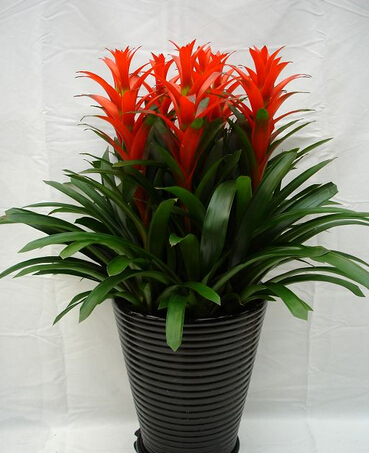(单词翻译:单击)
听力文本
This is Scientific American — 60-Second Science. I'm Christopher Intagliata.
Air pollution outside is easy to spot, hanging over the city, or sputtering from a tailpipe. But there's lot of indoor air pollution, too, even if it's not as obvious. It's caused by volatile organic compounds, or VOCs.
"They can come from building materials like paints, carpet, adhesives, vinyl floors, varnishes, solvents, etc." Vadoud Niri, an analytical chemist at the State University of New York, Oswego. "And also they can come from home and personal care products, cleaning chemicals, air freshener, cosmetics."
And that cosmetics part... is what caught Niri's attention. "One day when I went to a nail salon with my wife, I noticed the smell of, specifically, acetone in there. And since I was doing air analysis at that time, I thought maybe we can do something about this." Acetone can irritate your eyes, skin, nose and throat and at high concentrations can cause nausea, headaches and other nervous system problems.

Niri figured one way to get rid of acetone might be with houseplants. So he reviewed decades of literature in the field of plants as environmental cleanup agents—which is called biofiltration or phytoremediation. He then ran his own experiment, using an airtight chamber, eight VOCs, in concentrations similar to those found in nail salons, and five common houseplants: a jade plant, a spider plant, a bromeliad, a Caribbean tree cactus, and what's known as a Dracaena plant.
Turns out, after a twelve-hour test, it was the bromeliad that scrubbed the most chemicals from the air. But as for his original quest, removing acetone from nail salons? The Dracaena beat out the others, sucking up 94 percent of the offensive compound. He presented the results at a meeting of the American Chemical Society, in Philadelphia.
Niri hasn't worked out all the details on the nail salon solution yet—that's next. But for a house or apartment, he says, "use a variety of plants to make sure you take all types of VOCs from your indoor air." Plus, they're an energy-free alternative to other air cleaning devices. In other words, a truly green solution.
Thanks for listening for Scientific American — 60-Second Science Science. I'm Christopher Intagliata.
参考译文
这里是科学美国人——60秒科学。我是克里斯托弗·因塔利亚塔。
室外空气污染很容易看出来,污染物悬浮在城市上方,或者从排气管溅射出来。但是,虽然并不明显,但是室内也存在大量的空气污染。室内空气污染的源头是挥发性有机化合物(简称为VOCs)。
“它们可能来自油漆、地毯、粘合剂、地板革、清漆、溶剂等等建筑材料。”瓦杜德·尼里是纽约州立大学奥斯威戈分校的分析化学师。“它们也可能来自家居和个人保健产品、清洁剂、空气清新剂、化妆品。”
这其中,化妆品中的挥发物质吸引了尼里的注意力。“有一天,我和妻子一起去美甲沙龙,在那里我闻到了丙酮的味道。因为当时我正在进行空气分析,所以我想或许我们可以做这方面的研究。”丙酮可以刺激人的眼睛、皮肤、鼻子还有咽喉,高浓度的丙酮可以引发恶心、头痛以及其他神经系统问题。
尼里发现室内盆栽植物可以去除丙酮。所以,他浏览了数十年来有关植物净化空气的相关文献,这种方法被称为生物过滤或植物修复。然后,尼里自己进行了实验测试,他在一个密封的房间里放了8种挥发性有机化合物,其浓度与指甲沙龙内的浓度相似,另外他还放了5种常见的室内盆栽植物:一盆玉植物、一盆吊兰、一盆凤梨、一盆加勒比仙人掌和一盆龙血树属植物。
十二个小时的测试结果表明,凤梨最能吸收空气中的有毒气体。但是,至于最初的疑问,去除美甲沙龙里的丙酮?在这个问题上,龙血树是最厉害的,它吸收了94%的有害物质。尼里在费城举行的美国化学学会上发表了自己的研究结果。
尼里并没有完全解决美甲沙龙的问题。但是尼里表示,对于房屋或者公寓来说,“可以用多种植物来吸收室内空气中的各种挥发性有机化合物。”而且,这种方法是可以替代其他空气清洁设备的零能源方法。换言之,这是真正的绿色解决方案。
谢谢大家收听科学美国人——60秒科学。我是克里斯托弗·因塔利亚塔。
译文为可可英语翻译,未经授权请勿转载!
重点讲解
重点讲解:
1. get rid of 摆脱;甩掉;赶走;
例句:We have to get rid of the mud and dirt on the road.
我们必须把路上的烂泥和脏物除去。
2. beat out 打败;击败;战胜;
例句:Indianapolis beat out nearly 100 other cities as the site for a huge United Airlines maintenance center.
印第安纳波利斯从近百座城市中胜出,成为美国联合航空公司大型维护中心所在地。
3. work out 想出,得到(解决方法);解(谜);
例句:She finds it difficult to work out the problem.
她发现解决这问题有困难。
4. in other words 换言之;换句话说;也就是说;
例句:In other words, our forces, although small at present, will grow very rapidly.
这就是说,现在虽只有一点小小的力量,但是它的发展会是很快的。


